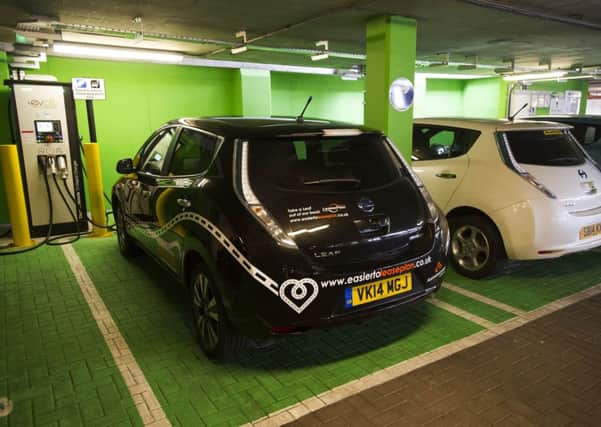Scottish Government '˜should set a date to scrap petrol cars'


Half of all buses and one third of cars will need to be powered by renewable electricity by 2030 to meet the government’s climate change policy, according to analysis by the WWF.
The environmental charity has joined forced with manufacturers in the electric vehicle industry, including the UK’s largest bus maker, to call for a decisive shift on Scotland’s roads.
Advertisement
Hide AdAdvertisement
Hide AdMeasures being demanded include rapid expansion of the electric vehicle charging point network, more pressure on public transport operators to switch to low-emission buses, and the creation of a network of low-emissions zones in the most polluted towns and cities to restrict the dirtiest vehicles.
Organisations are also calling for a date to be set for the phasing-out of vehicles that run on fossil fuels within the next ten to fifteen years.
The government is already committed to reducing the proportion of fossil fuel engines in urban environments to 50% by 2030, with all harmful emissions eliminated in towns and cities by 2050.
WWF Scotland said the country should look to Norway, where electric vehicles already make up a third of all new car sales, for an example of how to reach its targets.
WWF Scotland’s climate and energy policy officer Fabrice Leveque said: “Scottish companies are already involved in manufacturing electric buses and batteries, installing charge points and operating low emissions vehicles, reflecting growing global momentum behind the move to electric.
“Recent research has shown that the switch to electric vehicles is not only possible, but essential if we’re to reduce climate emissions from Scotland’s transport sector. Moving to electric will also clean up the dirty air in our towns and cities, and drivers will benefit from much lower fuel costs.”
Local manufacturers working in the electric vehicle supply chain said Scotland was well-placed to see an economic return from backing greener transport.
Paul Ross, the business development director of North Lanarkshire-based BMM Energy Solutions, a supplier of vehicle charging points, said: “Electric vehicles are becoming increasingly popular for businesses and the general public. However, despite the many benefits they bring to society, there are a number of potential barriers that hinder the uptake of EVs and that only government can solve.
Advertisement
Hide AdAdvertisement
Hide Ad“We are working with pioneering overseas companies which would enable us to bring the most advanced technology and vast knowledge to implement in Scotland and the rest of the UK.”
And Colin Robertson, the chief executive of Falkirk-based bus manufacturer Alexander Dennis, which employs 2,000 in the UK, Asia and North America, said action to support the electric vehicle industry would be “very welcome”.